10 Best Sales Productivity Tools to Adopt in 2025
For sales representatives Productivity isn’t just a nice-to-have—it’s essential. Closing deals faster, streamlining workflows, and maintaining seamless communication can be the difference between hitting targets and missing them. That’s where sales productivity tools come in.
These tools empower sales teams by automating tasks, simplifying content management, and optimizing processes that otherwise consume valuable selling time. From managing customer relationships to tracking performance, the right tools boost efficiency, effectiveness, and revenue.
In this blog, we’ve curated a list of top sales productivity tools to transform your sales game. From organizing content to automating repetitive work, these tools are your secret weapon for maximizing results. Let’s dive in!
Benefits of Effective Sales Productivity Tools
The adoption of effective sales productivity tools can significantly enhance the overall performance of sales teams. Here are some key benefits:
Improved Efficiency:
Sales productivity tools eliminate time-consuming manual tasks, such as data entry - which includes: Logging customer details, call notes, Updating lead status or pipeline stages And optimization of other processes such as: organizing sales collaterals, scheduling meetings, lead qualification. allowing sales professionals to focus on activities that directly impact revenue.
Automation of these tasks not only saves time but also reduces the likelihood of errors.
Streamlined Processes:
These tools provide a centralized platform for managing leads, customer data, and sales activities. By integrating with CRMs and other systems, they ensure seamless workflows, making it easier for teams to collaborate and stay aligned on their goals.
Actionable Insights:
Advanced analytics and reporting capabilities help sales managers identify trends, monitor team performance, and make informed decisions. By understanding what works and what doesn’t, organizations can refine their sales strategies to achieve better results.
Increased Sales Velocity:
With features like: real-time notifications, and streamlined communication, sales productivity tools help shorten sales cycles. This allows sales teams to close deals faster and move on to the next opportunity more quickly.
Better Team Collaboration:
Many sales productivity tools come with collaboration features that enable team members to share insights, track progress, and stay connected. This fosters a more cohesive team environment and ensures everyone is working towards common objectives.
Scalability and Adaptability:
As businesses grow, so do their sales challenges. Sales productivity tools are designed to scale with your organization, offering customizable features and integrations to address evolving needs. By leveraging the right sales productivity tools, organizations can unlock their sales team’s full potential, drive better outcomes, and gain a competitive advantage in the market.
Exploring the Sales Productivity Tools
1. Gong
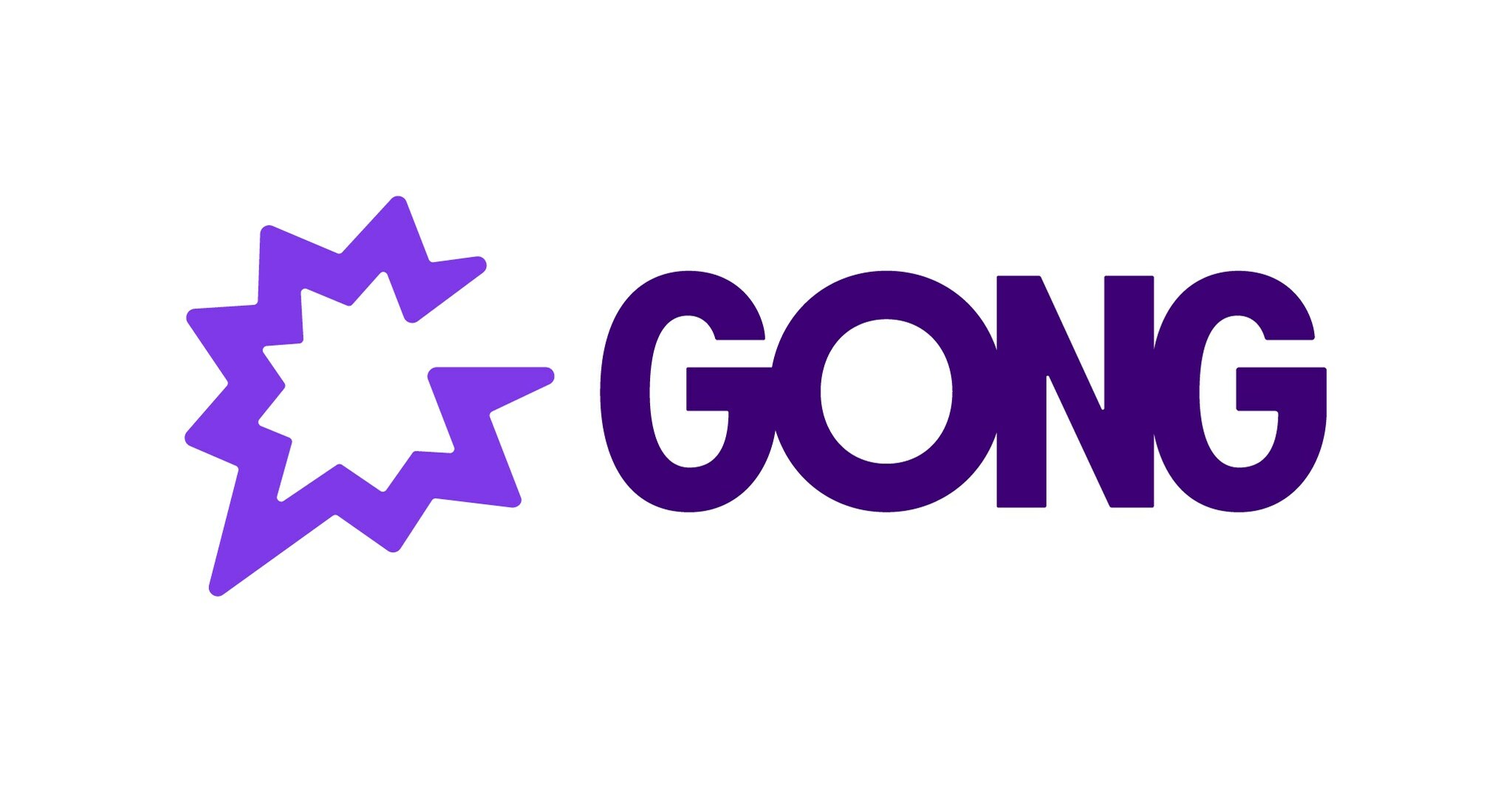
Gong is a powerful conversation analytics tool that provides sales teams with actionable insights to improve their sales interactions. Most CRMs that focus only on what has already happened in your sales, but don’t have the visibility to show you how you get there.
This leaves many important questions unanswered such as - Why didn’t this deal close? To understand these, you need full visibility into deals, people and the market. Or, What are the successful reps doing? Are my managers coaching optimally? Gong not only integrates with your CRM, but it also captures customer interactions across channels and analyses the data using AI.
Gong provides real insights and recommendations that will help your sales team close deals, and help you hit larger business goals. This is called Revenue Intelligence. By recording and analyzing sales calls, Gong identifies patterns, highlights areas for improvement, and offers data-driven recommendations for better engagement.
- Key Features:
- Call recording and transcription for detailed analysis.
- AI-powered insights into customer sentiment and behaviors.
- Real-time coaching opportunities for sales reps.
- Integration with popular CRMs for seamless data synchronization.
- Pros:
- Helps sales managers identify high-performing strategies.
- Offers detailed feedback for individual and team improvement.
- Enhances sales coaching with data-backed recommendations.
- Pricing:
- Custom pricing based on team size and requirements. Gong typically offers tailored plans for organizations.
- Ideal Teams:
- Sales coaching and performance analysis teams benefit the most from Gong, as it enables them to refine their strategies and train their salesforce effectively.
- OpenAI Capabilities:
- Gong leverages AI for sentiment analysis and pattern recognition, offering predictive insights into which approaches are likely to succeed.
2. Paperflite
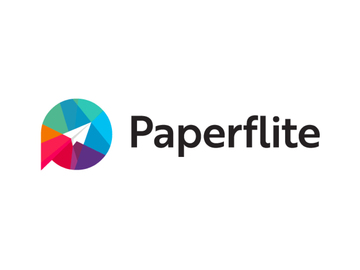
Paperflite is a content management and sales enablement platform that ensures sales reps have quick access to the right materials at the right time. It helps streamline content workflows, enabling sales teams to share relevant resources with prospects effortlessly.
It integrates with a wide range of other sales tools such as CRM, marketing automation tools, email marketing tools, chat tools - and serves as a single source of truth. So it reduces the stress of jumping across different tools to collect insights.
Also, Paperflite has seek which is AI powered LLM processing solution which helps revenue teams to gives exactly what they asked, remembers their previous questions, and retrieves precisely those relevant snippets of information from your organization’s content library and the most relevant document in under seconds. - Sales reps no longer have to go through multiple folders and various versions to get the right content or the exact snippet of the content they have been searching for, thus saving their time and efforts that they can spend on other things.
Paperflite, helps to identify the cotent that performance well with the prospects with its analytics, this further helps the sales reps in sharing content that has higher possibilities of conversion, they will no longer have to shoot the darts in the dark and this makes their follow ups and emails more effective.
With it features like - live collections, smart recommendations, and easy user experience that’s just like netflix it makes it easier for sales reps to navigate the platform and also prevents reps from having multiple back and forth conversations with marketing team regaind the latest updates of the content.
By reducing the time spent on non-core tasks, Paperflite empowers sales representatives to focus more on building relationships and closing deals. The ability to track content performance and understand client preferences ensures that every interaction is impactful and efficient.
Key Features of Paperflite
- Streamlined Content Management
Paperflite centralizes all sales collaterals, allowing reps to access the right content effortlessly. This minimizes time spent searching for materials, enabling quicker and more precise responses to client needs. - Insight-Driven Engagement
With Paperflite’s analytics, sales reps can track how clients interact with shared content. Metrics like views, time spent, and downloads provide clear insights into what resonates with the buyer. This data empowers reps to refine their approach, ensuring that they share content that aligns perfectly with client requirements. - Buyer Persona and Behavior Insights
Paperflite delivers reliable insights into buyer personas and behaviors, allowing sales reps to anticipate client needs without requiring direct feedback. This proactive approach enhances customer satisfaction and engagement. - Real-Time Engagement
The Engage feature equips sales teams to analyze and optimize interactions with clients throughout their buyer's journey. Key functionalities include:- Collaborative Conversations: Foster better communication within teams and with clients.
- Real-Time Notifications: Stay informed about client actions to initiate timely conversations.
- Data and Insights: Leverage actionable data to make informed decisions.
- Engagement Score: Gauge client interest and prioritize follow-ups effectively.
- Seamless Integrations
Paperflite integrates with world-class software tools, ensuring a smooth workflow across CRM, email, and other sales platforms. This integration eliminates redundancies, saving resources and time.
In conclusion, Paperflite is not just a tool; it’s a strategic asset that transforms how sales teams work, delivering better results and fostering long-term customer relationships.
- Pros:
- Reduces the time spent searching for content.
- Provides insights into what content resonates with prospects.
- Enhances collaboration between sales and marketing teams.
- Pricing:
- Pricing plans are also available upon request and can be tailored to organizational needs.
- Ideal Teams:
- Sales reps and marketing teams benefit from Paperflite’s ability to align their efforts and deliver personalized content.
- OpenAI Capabilities: Paperflite can integrate with AI-driven analytics to recommend the best content for specific scenarios, boosting engagement and conversion rates.
4. Intercom
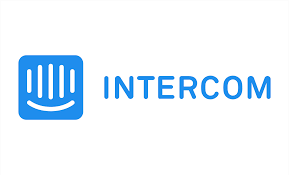
Intercom is a leading customer communication platform designed to enhance real-time engagement across various stages of the customer journey. Leveraging its advanced chatbot and messaging features, Intercom empowers businesses to provide personalized, efficient, and proactive customer support while driving lead generation and engagement.
Key Features of Intercom
- Real-Time Customer Engagement
Intercom enables seamless communication with customers through live chat, allowing businesses to address inquiries instantly. Its real-time capabilities foster trust, improve customer satisfaction, and ensure faster resolution of issues. - Advanced Chatbots
Intercom's chatbot functionality automates repetitive tasks, such as answering FAQs, qualifying leads, and routing queries to the appropriate teams. These AI-powered bots operate 24/7, ensuring continuous support and engagement even outside business hours. - In-App Messaging
Intercom’s messaging system supports personalized in-app and email communication, making it easier for businesses to reach customers on their preferred platforms. Its proactive messaging feature allows businesses to engage customers at key moments, driving conversions and improving user experience. - Comprehensive Insights
With powerful analytics, Intercom provides actionable insights into customer behavior and engagement metrics. Teams can leverage these insights to refine their strategies and deliver more targeted support and engagement.
Pros:
- User-friendly interface and intuitive design.
- Versatile integrations with popular tools like Salesforce, Slack, and HubSpot.
- Robust automation features reduce manual workload.
- Scalable for businesses of all sizes.
- Highly customizable messaging and chatbot options.
Cons:
- Pricing can be prohibitive for smaller businesses.
- Advanced features often require add-ons, increasing overall costs.
- Limited customization for some reporting features.
Pricing:
Intercom offers tiered pricing models based on business needs:
- Starter Plan: Designed for small businesses, starting at $74 per month.
- Pro Plan: Ideal for scaling businesses, with pricing customized based on usage.
- Enterprise Plan: Tailored for large organizations requiring advanced features and support.
Additional costs may apply for add-ons like advanced bots, product tours, or integrations.
OpenAI Capabilities:
Intercom integrates AI-powered chatbots to handle complex customer queries and provide instant, accurate responses.
Intercom stands out as a versatile platform for businesses seeking to elevate their customer engagement strategies. Its real-time communication tools, AI-driven chatbots, and insightful analytics make it a valuable asset for customer support and lead engagement teams. While its pricing may be a consideration for smaller businesses, the platform’s robust features and scalability make it a worthwhile investment for those aiming to deliver exceptional customer experiences.
5. SDRx
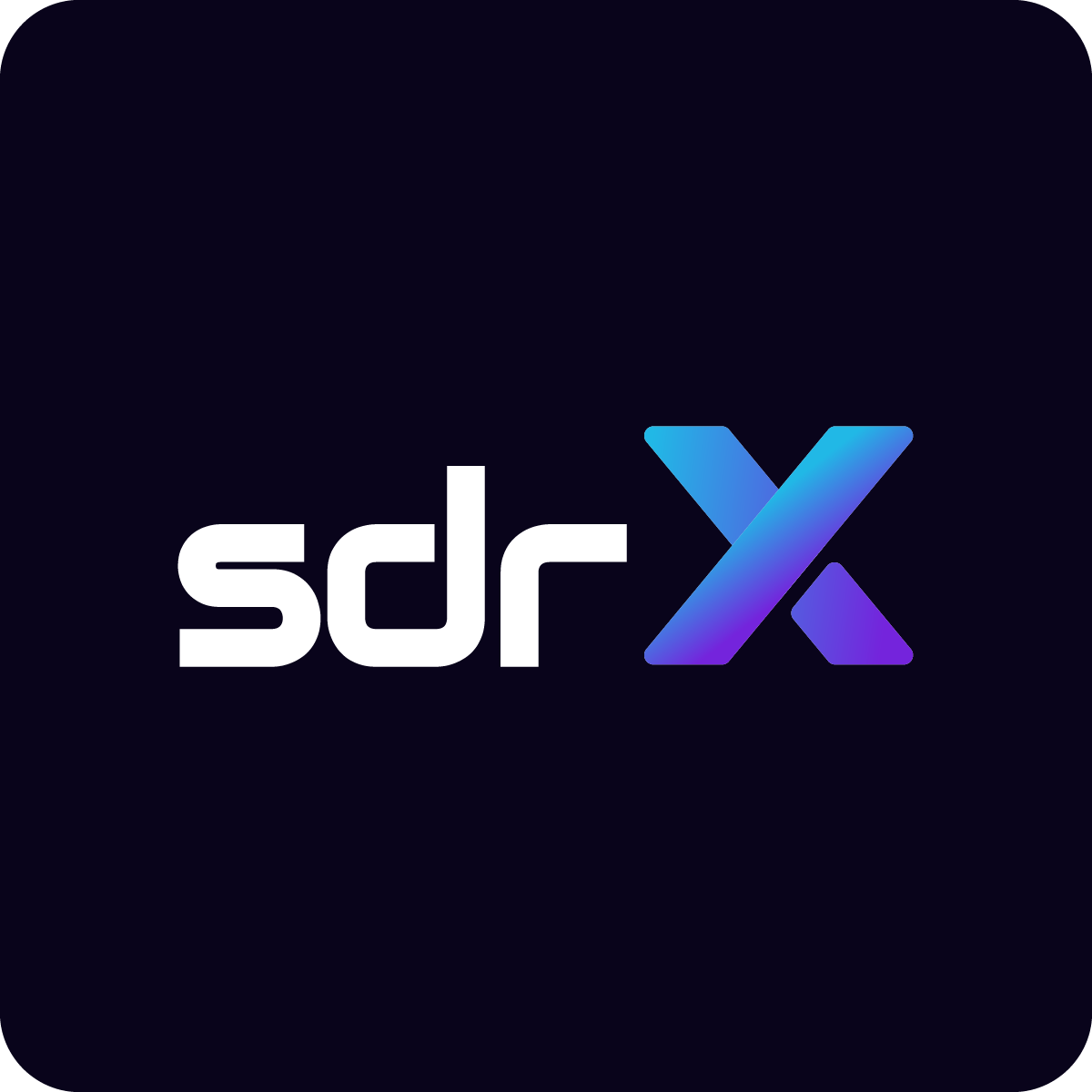
SDRx is an AI-driven Sales Development Representative (SDR) tool designed to automate and enhance outbound sales efforts. By streamlining tasks like prospecting, research, and personalized outreach, SDRx allows sales teams to focus on what truly matters—building relationships and closing deals.
How SDRx Helps Sales Teams
SDRx enhances productivity by automating routine tasks, enabling teams to scale their efforts without expanding their headcount. From prospect list-building to continuous follow-up emails, SDRx ensures consistent engagement with potential clients.
Key Features
- List-Building: Automatically creates targeted prospect lists based on Ideal Customer Profiles (ICPs).
- Prospect Research: Gathers insights from multiple data sources for in-depth account understanding.
- Personalized Outreach: Crafts tailored emails using proven templates to boost response rates.
- Smart Follow-Ups: Adjusts follow-up email frequency and content based on prospect engagement.
Pros:
- Automates time-consuming tasks, freeing up sales reps for high-value activities.
- Provides personalized outreach at scale.
Cons:
- Relies on the quality of data for optimal results.
- Teams may experience a learning curve during initial setup.
AI Capabilities
SDRx uses AI to understand your company's products, competitors, and customer needs, enabling it to conduct effective research and create customized communication strategies that resonate with prospects.
6. RevenueHero

RevenueHero is an AI-powered scheduling platform designed to streamline the meeting booking process for businesses. With its advanced automation capabilities, RevenueHero optimizes scheduling, automates follow-ups, and ensures a seamless experience for both teams and customers. It makes buying simpler for prospects and it gets 80% more people booking on their rep’s calendar, thereby driving more pipeline.
When a prospect fills out a form on your website, RevenueHero immediately qualifies them using form data or enriched information, assigns them to the appropriate sales representative, and enables them to schedule a meeting instantly after submission. This eliminates the need for lengthy email exchanges to coordinate meeting times, prevents losing prospects’ attention in busy inboxes, and removes the manual effort of lead qualification and distribution through spreadsheets.
Key Features of RevenueHero:
- AI-Driven Scheduling
RevenueHero leverages artificial intelligence to simplify the scheduling process. It intelligently matches meeting availability based on participants’ calendars, minimizing back-and-forth communications and ensuring quick, hassle-free bookings. - Automated Follow-Ups
The platform automates follow-up communications, ensuring that no potential lead or customer meeting opportunity slips through the cracks. Personalized reminders and notifications help maintain engagement and reduce no-shows. - Booking Optimization
RevenueHero's optimization tools ensure that meetings are scheduled at the most suitable times for all parties involved. By prioritizing high-value leads or customers and aligning bookings with team availability, it maximizes productivity and minimizes scheduling conflicts.
Pros:
- User-friendly interface with quick setup and integration.
- AI-driven features reduce manual effort and save time.
- Automated follow-ups improve engagement and meeting attendance rates.
- Scalable solutions suitable for businesses of all sizes.
- Integrates seamlessly with popular tools like CRM platforms and calendars.
Cons:
- Advanced customization options may require additional setup.
- Limited features for businesses with highly complex scheduling needs.
- Pricing may be a consideration for smaller teams with tight budgets.
Pricing Details:
RevenueHero typically offers flexible pricing plans based on team size and feature requirements. While exact pricing details may vary, businesses can expect tiered plans that scale with their needs, ensuring affordability for startups and robust functionality for larger enterprises.
Suitable Teams for RevenueHero:
- Sales Teams
RevenueHero is an excellent tool for sales teams, helping them schedule meetings with leads and prospects quickly and efficiently. The AI-driven scheduling ensures that no opportunities are lost due to delays in communication. - Customer-Facing Teams
Teams responsible for customer onboarding, support, or account management can benefit from RevenueHero’s automated follow-ups and optimized scheduling, ensuring timely and effective client interactions.
RevenueHero is a game-changing platform for businesses looking to enhance their scheduling and meeting management processes. With its AI-powered capabilities, automated follow-ups, and booking optimization, it not only saves time but also boosts productivity and engagement. While pricing and customization may require consideration for specific use cases, its robust features make it a valuable asset for sales and customer-facing teams aiming to maximize their efficiency and deliver exceptional customer experiences.
7. Salesforce
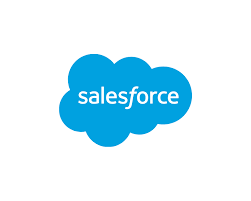
Salesforce is a comprehensive Customer Relationship Management (CRM) platform that enables businesses to manage customer relationships, streamline operations, and drive growth. Renowned for its versatility and scalability, Salesforce offers robust tools for sales, marketing, customer service, and analytics, making it an indispensable solution for organizations of all sizes.
Salesforce serves more than 150,000 customers globally, offering a diverse ecosystem of cloud platforms that enable seamless interaction with data and enhanced customer engagement. It delivers a comprehensive 360-degree view of the customer lifecycle, supported by centralized data management, optimized workflows, and interconnected systems.
These capabilities empower businesses to gain deeper insights into their customers and provide exceptional service efficiently.
Key Features of Salesforce:
- Comprehensive CRM Capabilities
Salesforce provides an all-in-one platform to manage customer data, track interactions, and analyze business performance. With features like contact and opportunity management, pipeline tracking, and detailed reporting, Salesforce empowers teams to optimize their customer relationships and sales processes. - Customization Options
One of Salesforce’s greatest strengths lies in its ability to adapt to unique business needs. Through the Salesforce AppExchange, custom workflows, and tailored dashboards, businesses can configure the platform to align perfectly with their operations. - Automation Features
Salesforce’s automation tools, such as workflows, process builders, and Einstein AI, enable businesses to automate repetitive tasks, such as lead nurturing, email follow-ups, and data entry. This not only saves time but also enhances accuracy and efficiency.
Pros:
- Highly customizable and scalable to meet the needs of businesses of all sizes.
- Extensive ecosystem of third-party integrations via the AppExchange.
- Robust analytics and reporting tools for data-driven decision-making.
- Advanced automation features, including AI-powered insights.
- Strong customer support and a vast knowledge base.
Cons:
- High implementation and subscription costs, particularly for smaller businesses.
- Steeper learning curve due to its extensive feature set.
- Customization and integrations may require technical expertise.
Pricing Details:
Salesforce offers various pricing tiers to accommodate different business needs:
- Essentials Plan: $25/user/month, ideal for small businesses.
- Professional Plan: $75/user/month, suited for growing teams.
- Enterprise Plan: $150/user/month, offering advanced features and customizations.
- Unlimited Plan: $300/user/month, providing access to all features and 24/7 support.
Pricing is based on an annual subscription, with additional costs for specific add-ons and advanced features.
Suitable Teams for Salesforce:
- Sales Teams
Salesforce equips sales teams with tools for lead management, opportunity tracking, and pipeline forecasting, enabling them to close deals more efficiently. - Relationship Management Teams
Customer service and account management teams can leverage Salesforce to maintain detailed records of customer interactions, manage cases, and deliver personalized service. - Marketing Teams
With tools like Salesforce Marketing Cloud, teams can create targeted campaigns, track performance, and engage with customers more effectively.
Salesforce is a powerful CRM platform that transforms how businesses manage customer relationships and operations. Its comprehensive feature set, customization options, and advanced automation capabilities make it a top choice for sales and relationship management teams. While the cost and complexity may pose challenges for smaller businesses, the platform’s robust functionality ensures it remains a valuable investment for organizations seeking to enhance their customer engagement and drive long-term success.
8. Hubspot
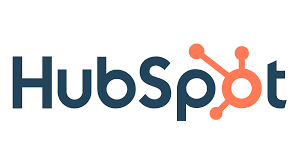
HubSpot is a leading software platform that offers a suite of tools designed to support inbound marketing, sales, and customer service. Known for its user-friendly interface and scalability, HubSpot empowers businesses to attract, engage, and delight customers while aligning marketing and sales efforts to drive growth.
Key Features of HubSpot:
- Inbound Marketing Tools
HubSpot’s marketing suite includes tools for content creation, email marketing, social media management, and SEO optimization. These features enable businesses to attract and engage prospects organically, nurturing them through the buyer's journey with personalized, data-driven campaigns. - Sales Tools
HubSpot's sales tools streamline lead management, automate outreach, and provide insights into prospect behavior. Features like email tracking, meeting scheduling, and pipeline management enhance efficiency and help sales teams close deals faster. - Marketing Automation
HubSpot’s robust automation features allow businesses to create workflows that trigger actions based on customer behavior, such as sending follow-up emails or updating CRM records. This automation reduces manual effort, ensures consistent communication, and enhances the overall customer experience. - Seamless Integrations
HubSpot integrates seamlessly with a wide range of third-party tools, including CRMs, analytics platforms, and project management software. These integrations help businesses unify their tech stack and streamline operations.
Pros and Cons of HubSpot
Pros:
- Intuitive interface that is easy to navigate, even for beginners.
- Comprehensive suite of tools for marketing, sales, and customer service.
- Robust analytics and reporting capabilities.
- Scalable solutions suitable for small businesses and enterprises alike.
- Extensive library of educational resources and strong customer support.
Cons:
- Pricing can be expensive, particularly as businesses scale and require advanced features.
- Certain features, like advanced reporting and custom automation, are locked behind higher-tier plans.
- May require a learning curve for teams unfamiliar with marketing automation.
Pricing Details
HubSpot offers tiered pricing plans to cater to businesses of all sizes:
- Free Plan: Includes basic tools for CRM, marketing, and sales.
- Starter Plan: Starting at $20/month, ideal for small teams looking for additional features.
- Professional Plan: $800/month, designed for scaling businesses with more advanced needs.
- Enterprise Plan: $3,600/month, tailored for large organizations requiring robust customization and analytics.
Pricing varies depending on the suite chosen (Marketing, Sales, or Service Hub) and additional contacts or users.
Suitable Teams for HubSpot
- Small Businesses
HubSpot’s free and starter plans are ideal for small businesses looking for cost-effective tools to manage marketing and sales efforts without sacrificing functionality. - Marketing Teams
Marketing teams benefit from HubSpot’s inbound tools, automation capabilities, and analytics, allowing them to create and optimize campaigns that attract and nurture leads effectively. - Sales Teams
Sales teams can use HubSpot’s lead management, pipeline tracking, and automated outreach tools to close deals faster while maintaining alignment with marketing efforts.
HubSpot is a versatile and powerful platform that excels in inbound marketing, sales, and customer service. Its robust toolset, seamless integrations, and focus on automation make it an excellent choice for businesses seeking to align marketing and sales teams while delivering a superior customer experience. Although pricing may be a consideration for smaller teams or startups, the platform's scalability and rich feature set make it a worthwhile investment for businesses aiming to grow and succeed in today’s competitive market.
9. Klenty
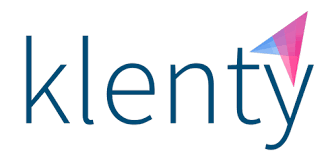
Klenty is an email automation platform designed to help sales and outreach teams streamline their communication and follow-up processes. With its advanced automation capabilities, seamless CRM integrations, and analytics features, Klenty enables businesses to efficiently engage with prospects, nurture leads, and close deals faster.
Key Features of Klenty
- Email Automation
Klenty simplifies email outreach by automating personalized email campaigns at scale. Users can set up sequences that deliver tailored emails to prospects at the right time, reducing manual effort and ensuring consistent communication. - Follow-Up Capabilities
Klenty’s automated follow-up feature allows users to create multi-step outreach sequences, ensuring that no prospect is left unattended. It tracks recipient behavior, such as opens, clicks, and replies, and triggers follow-ups based on these actions. - Integration with CRMs
Klenty integrates seamlessly with popular CRM platforms like Salesforce, HubSpot, and Zoho CRM. This integration ensures that all outreach activities are synchronized with the CRM, providing sales teams with a unified view of prospect interactions. - Analytics and Reporting
Klenty provides detailed analytics to track the performance of email campaigns, including metrics like open rates, click-through rates, and response rates. These insights help teams optimize their outreach strategies and improve engagement.
Pros:
- User-friendly interface and easy-to-set-up workflows.
- Advanced personalization options for email campaigns.
- Seamless integration with leading CRM platforms.
- Comprehensive analytics to track campaign performance.
- Time-saving automation features for follow-ups.
Cons:
- Limited functionality for teams requiring advanced marketing automation features.
- May lack flexibility for businesses with highly complex outreach needs.
- Email deliverability rates can vary depending on usage and compliance with best practices.
Pricing Details:
Klenty offers tiered pricing plans based on the number of users and features required:
- Startup Plan: $50/user/month, suitable for small teams with basic outreach needs.
- Growth Plan: $70/user/month, designed for growing teams requiring advanced automation.
- Enterprise Plan: $100/user/month, tailored for larger teams with complex outreach requirements.
All plans include a free trial, and annual subscriptions typically offer discounts.
Suitable Teams for Klenty:
- Outreach Teams
Klenty is ideal for outreach teams looking to manage high-volume email campaigns efficiently. Its automation and tracking features ensure consistent and effective prospect engagement. - Sales Teams
Sales teams can use Klenty to automate follow-ups, track prospect interactions, and integrate seamlessly with CRMs, enabling them to focus on closing deals rather than administrative tasks.
OpenAI Capabilities: Klenty uses AI to analyze email engagement data, recommend the best times to send emails, and optimize outreach sequences for better results.
Klenty is a powerful tool for businesses seeking to optimize their email outreach and sales follow-up processes. Its robust automation capabilities, CRM integrations, and analytics features make it a valuable asset for outreach and sales teams. While it may not cater to highly complex marketing workflows, its ease of use and focus on sales engagement ensure it remains a top choice for teams aiming to enhance their productivity and close deals faster.
10. Outreach

Outreach is a leading sales engagement platform that enables teams to streamline their sales processes, engage prospects across multiple channels, and gain actionable insights through advanced analytics. By combining automation, personalization, and tracking, Outreach helps sales development and outreach teams maximize productivity and drive revenue growth.
Key Features of Outreach:
- Multi-Channel Engagement
Outreach supports engagement across various channels, including email, phone, and social media. This allows sales teams to reach prospects where they are most active, creating a personalized and comprehensive sales approach. - Sales Sequence Automation
With Outreach, users can design and automate multi-step sales sequences to ensure consistent and timely communication with prospects. Automated follow-ups and task reminders help teams maintain engagement without manual effort. - Advanced Tracking and Analytics
Outreach provides detailed analytics to track the performance of sales sequences, emails, and calls. Metrics such as open rates, reply rates, and engagement trends help teams optimize their strategies and make data-driven decisions. - CRM Integration
Outreach integrates seamlessly with popular CRM platforms, such as Salesforce and HubSpot, ensuring all activities are synchronized. This enables sales teams to maintain a unified view of prospect interactions and streamline workflows.
Pros:
- Comprehensive multi-channel engagement tools.
- Highly customizable and automated sales sequences.
- Detailed performance analytics for data-driven decision-making.
- Seamless integrations with CRM and other sales tools.
- Intuitive interface that is easy to use and set up.
Cons:
- Higher pricing compared to similar platforms.
- Features may be overwhelming for smaller teams or businesses.
- Limited flexibility for non-sales use cases.
Pricing Details:
Outreach offers customized pricing based on the size and needs of the business. While exact pricing is not publicly listed, it is considered a premium solution tailored for mid-sized and enterprise-level organizations. Interested businesses can request a demo or pricing details directly from Outreach’s website.
Suitable Teams for Outreach:
- Sales Development Teams
Outreach is designed to empower sales development teams by automating repetitive tasks, managing prospect interactions, and optimizing outreach strategies, helping them focus on converting leads into opportunities. - Outreach Teams
Outreach teams benefit from the platform’s multi-channel capabilities and automation features, allowing them to engage with prospects effectively and maintain consistent follow-ups.
OpenAI Capabilities: Outreach incorporates AI to analyze outreach data and recommend improvements for sequences and communication strategies.
FAQs
1. What are sales productivity tools?
Sales productivity tools are software solutions designed to enhance the efficiency and effectiveness of sales teams by automating tasks, providing insights, and streamlining workflows.
2. How do these tools benefit small businesses?
Small businesses can leverage these tools to maximize efficiency, improve lead management, and achieve more with limited resources.
3. Can these tools integrate with my existing CRM?
Yes, most tools on this list offer seamless integration with popular CRMs.
4. Are there free options available?
Yes, some tools like HubSpot CRM and Scratchpad offer free plans with basic features.
Conclusion
Investing in the right sales productivity tools can significantly impact your team’s performance and overall business success. By understanding your specific challenges and exploring the options listed above, you can find the perfect tool to streamline your sales process, improve efficiency, and drive better results.
